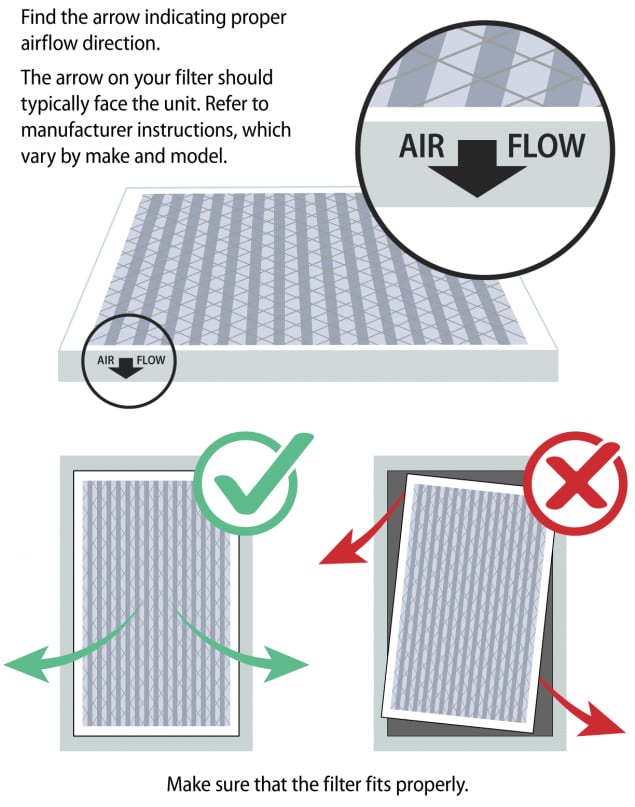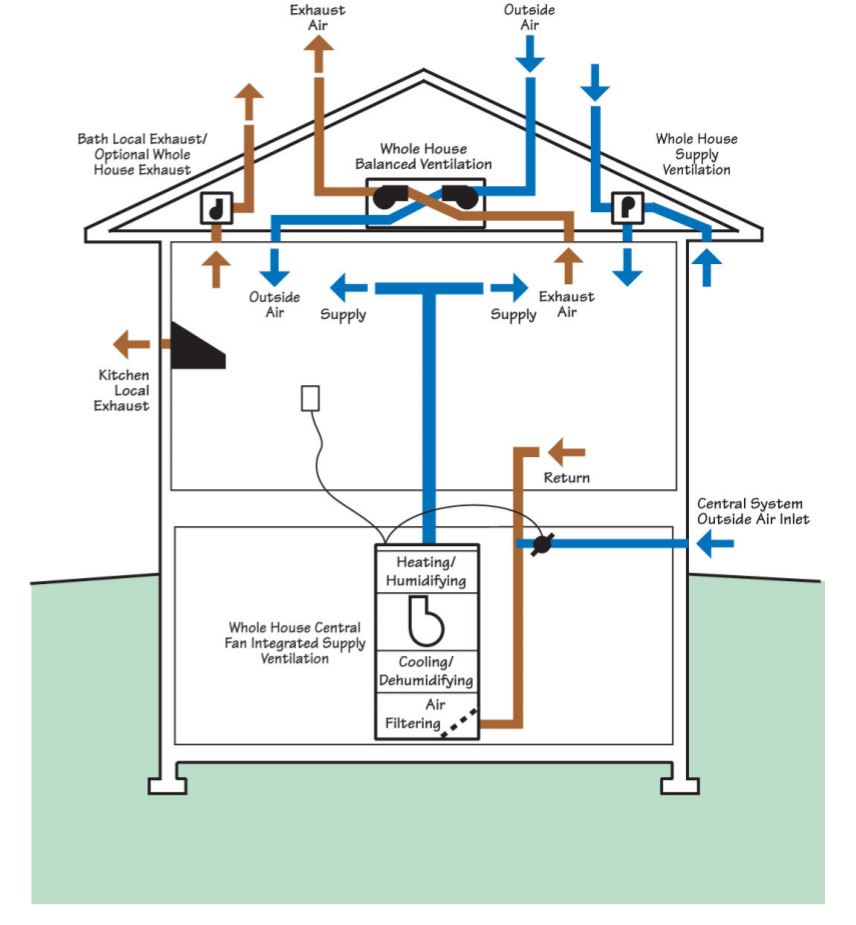The Role of Home Ventilation in Preventing Mold and Indoor Allergens
Home air flow is a critical part in preserving a healthy interior setting. It controls humidity degrees, which can stop the development of mold and mildew and the build-up of allergens. Numerous homeowners ignore the significance of proper ventilation, usually causing undetected problems. Comprehending how air flow systems function and their effect on air high quality might be the key to a much healthier home. What steps can be taken to improve these systems properly?
Recognizing Home Air Flow Solutions
While lots of home owners might ignore the value of air flow, recognizing home ventilation systems is vital for keeping interior air top quality and avoiding mold development - Home Ventilation Melbourne. These systems assist in the exchange of stale interior air with fresh exterior air, properly reducing pollutants and moisture levels. Typical kinds consist of all-natural ventilation, which counts on wind and temperature distinctions, and mechanical air flow, which makes use of ducts and fans to control airflow. Furthermore, balanced ventilation systems combine both methods to maximize air quality. Correctly developed and maintained ventilation systems can aid manage temperature level and moisture, making certain a comfy living setting. Property owners ought to think about elements like home occupancy, format, and environment when choosing a ventilation system to best suit their demands and enhance overall air top quality
The Influence of Humidity on Mold And Mildew Development
Humidity plays a critical function in mold and mildew growth, making it a critical aspect for property owners to check. Mold thrives in settings where moisture levels surpass 60%, as these problems provide the dampness needed for spores to multiply and germinate. High humidity can arise from numerous sources, including inadequate ventilation, water leaks, and food preparation or bathing tasks. When humidity levels stay raised, mold can establish swiftly on natural materials such as textile, wood, and drywall. Property owners need to make use of dehumidifiers and guarantee appropriate air flow in locations susceptible to wetness, such as cellars and restrooms. Maintaining indoor humidity between 30% and 50% can greatly decrease the danger of mold and mildew growth, adding to a much healthier living setting.
Identifying Common Indoor Allergens
Indoor atmospheres can nurture a selection of allergens that impact health and wellness and convenience. Common indoor allergens include allergen, family pet dander, mold and mildew spores, and plant pollen. read Allergen flourish in bed linen, carpetings, and furniture, feeding on natural product and contributing to respiratory issues. Animal dander, composed of small flakes from skin and hair, can cause allergies in delicate people. Mold and mildew spores, often present in wet locations, can multiply and influence air high quality. Furthermore, pollen can penetrate homes via open home windows or on clothing. Recognizing these irritants is necessary for preserving a healthy indoor setting. Recognition of their visibility enables house owners to take positive measures to decrease direct exposure and improve total indoor air top quality.
Benefits of Appropriate Ventilation
Correct air flow is necessary for keeping a healthy interior setting, as it helps to control air high quality and decrease the buildup of contaminants. Appropriate airflow helps with the exchange of indoor and exterior air, therefore thinning down dangerous substances such as unpredictable organic substances, allergens, and dust. This process not only improves convenience but likewise contributes to the general health of passengers by minimizing breathing issues (Home Ventilation Melbourne). Proper ventilation properly controls moisture degrees, reducing the possibility of mold and mildew development and fostering a drier environment favorable to health and wellness. In addition, it can enhance power more info here efficiency by making sure that heating & cooling systems run much more properly, leading to reduced energy costs. Generally, correct air flow is a vital part in advertising a healthy and balanced and secure space

Tips for Improving Home Ventilation
Although numerous property owners may ignore it, enhancing home air flow is crucial for enhancing air top quality and preventing mold development. One reliable method is to regularly open home windows to advertise cross-ventilation, enabling fresh air to distribute. Installing exhaust fans in kitchens and restrooms can successfully get rid of moisture-laden air, reducing humidity levels. Homeowners must additionally take into consideration making use of air cleansers with HEPA filters to capture pollutants and irritants. On a regular basis maintaining HVAC systems, including transforming filters, warranties peak airflow and efficiency. Sealing leaks around doors and windows can stop outside air from going into, which helps preserve a regular indoor environment. Including houseplants can normally improve air quality while including aesthetic value to the home.
Regularly Asked Concerns
How Frequently Should I Clean My Home Ventilation System?
Establishing exactly how commonly to clean a home air flow system depends on different elements, consisting of use and environmental problems. Home Ventilation Melbourne. Normally, experts recommend a thorough cleansing every three to five years to preserve perfect air flow and efficiency
Can Plant Kingdom Help Minimize Indoor Allergens?
Study indicates that specific interior plants might help reduce allergens by enhancing air quality and enhancing humidity. Their effectiveness varies, and maintaining a clean setting continues to be crucial for taking care of indoor irritants successfully.
What Kinds of Air Filters Are Ideal for Mold Avoidance?

Exist Specific Air Flow Needs for Basements?

Exactly how Do I Know if My Ventilation Is Functioning Effectively?
To identify effective air flow, one must check humidity levels, check air movement with vents, and observe signs of condensation or stagnant air. Normal analyses view can show whether the system sufficiently flows and exchanges indoor air.
Understanding how ventilation systems function and their effect on air quality can be the key to a much healthier living area. While lots of homeowners might ignore the significance of ventilation, recognizing home ventilation systems is vital for keeping interior air quality and stopping mold and mildew development. Common kinds include natural ventilation, which counts on wind and temperature level distinctions, and mechanical ventilation, which makes use of followers and air ducts to control air movement. Appropriate ventilation is important for maintaining a healthy and balanced interior environment, as it assists to manage air high quality and lower the buildup of contaminants. Lots of homeowners may overlook it, improving home air flow is necessary for boosting air high quality and avoiding mold and mildew development.